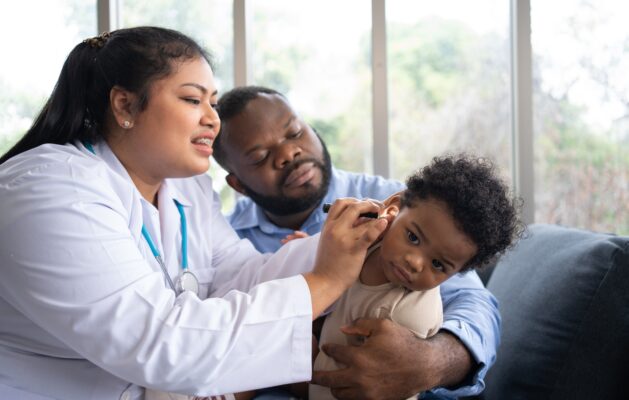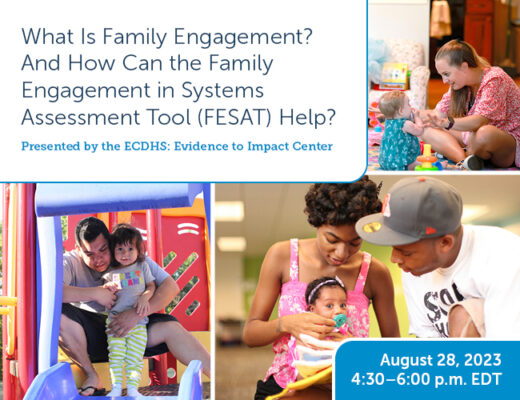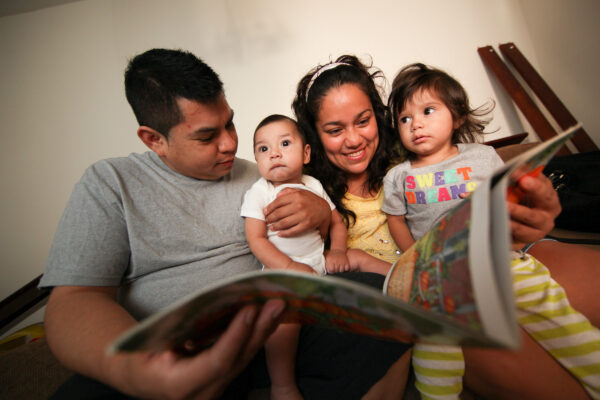Systems Change in Early Childhood Using the Water of Systems Change Framework

In this webinar, Melissa Passarelli, associate director of implementation and system-building at the Help Me Grow National Center, and Jennifer Splansky Juster, executive director at Collective Impact Forum, introduced The Water of Systems Change framework and how it can be applied to early childhood systems-building work. They walked through six interdependent conditions that vary from “explicit” to “implicit”:
- Structural Change (explicit): policies, practices, resource flows
- Relational Change (semi-explicit): relationships & connections, power dynamics
- Transformative Change (implicit): mental models
This webinar was designed to help early childhood and health systems leaders – including Title V; Association of Maternal and Child Health Programs; Early Childhood Comprehensive Systems; Maternal, Infant, and Early Childhood Home Visiting; Preschool Development Grant Birth Through Five; and similar program leaders – identify potential strategies for their work. The learning objectives were to:
- List the six conditions of systems change.
- Identify ways to apply a shift of conditions to early childhood work.
- Define conceptual models of systems and systems change.
Watch the recording and see the key takeaways below to learn more.
Key Takeaways
- A “system” is a group of interacting, interrelated, and interdependent components that form a whole. A system’s overall purpose or goal is achieved through the actions and interactions of its components. “Systems change” refers to shifting the conditions that hold the problem in place.
- An early childhood system includes the interdependent policies, programs, services, and infrastructure that impact outcomes for young children and families, including:
- Traditional early childhood services like child health, family support, and early care and education;
- Additional family-serving supports like faith-based initiatives, child and family legal services, child welfare, and food and nutrition;
- Housing, economic development, and workforce development and employment; and
- Arts and culture, neighborhood health and safety, and transportation.
- Often, systems change starts with structural change (policy, practices, resource flows) to help meet immediate needs, without attending to relational or transformative change. While structural change is important, it is also important to think about the relational and transformative components.
- It is unrealistic for one individual or organization to meaningfully impact all six conditions of change at once. The Water of Systems Change framework helps to understand gaps and plan for action, which needs to happen across a broad range of actors in a community or system.
- It is critical to have different stakeholders involved in systems change to get as many perspectives as possible and understand what work needs to happen to create shifts.
Examples of Systems Change in Early Childhood
- Structural Change (Policy, Practices, Resource Flows)
- Supporting practice change across partners to promote positive outcomes in development, such as partnering around developmental promotion and implementing screening across various sectors
- Establishing and improving referral pathways across partners in the early childhood system
- Leveraging and aligning funding
- Relational Change (Relationships & Connections, Power Dynamics)
- Supporting co-leadership and co-creation with families
- Improving relationships across sectors by integrating activities, having standard networking meetings, and establishing and aligning collectives
- Transformative Change (Mental Models)
- Understanding how programmatic thinking interconnects with system thinking
- Shifting from deficit-based to asset-based mindsets
- Moving from the identification of problems to the promotion of health outcomes
- Moving from a culture of scarcity to leveraging efforts, funding, and existing partnerships
Speaker Bios
Melissa Passarelli, MA
Melissa serves as the associate director of implementation and system-building at the Help Me Grow National Center. Prior to this role, Melissa served as the director of programs at Docs for Tots where she directed Help Me Grow Long Island, acted as the local Early Childhood Comprehensive Systems Grant (ECCS) team lead, provided technical assistance to physicians and other providers on implementing screening initiatives, and coordinated Help Me Grow efforts across New York State. Melissa was the Centers for Disease Control and Prevention’s (CDC) Act Early Ambassador for New York State from 2019-2022 and has been a board trustee for T1International since 2020.
Melissa has an MA in International Disaster Psychology from the University of Denver and a BA in Psychology and Public Policy from The George Washington University. During her education she trained as a trauma therapist and helped establish Denver’s Trauma & Disaster Recovery Clinic, as well as worked for nonprofits such as First Book.

Jennifer Splansky Juster, MBA
Jennifer Splansky Juster is executive director of the Collective Impact Forum. She is one of FSG’s leaders in collective impact field building, has worked on multiple collective impact engagements, designed training opportunities for thousands of collective impact practitioners, and frequently speaks on the topic. Jennifer has co-authored multiple publications on collective impact, including the report Guide to Evaluating Collective Impact and the articles “Committing to Collective Impact: From Vision to Implementation” and “Essential Mindset Shifts for Collective Impact.”
Over the course of her career, Jennifer has also worked with a range of foundations, nonprofits, government agencies, and corporations across sectors on issues of strategy, evaluation, and program design. Former clients include the Bill & Melinda Gates Foundation, Conrad N. Hilton Foundation, Marin Community Foundation, Girard College, David and Lucile Packard Foundation, and Silicon Valley ALLIES.
A California native, Jennifer is a graduate of Stanford University and Northwestern’s Kellogg School of Management. She lives in Berkeley, California with her husband and two daughters.




